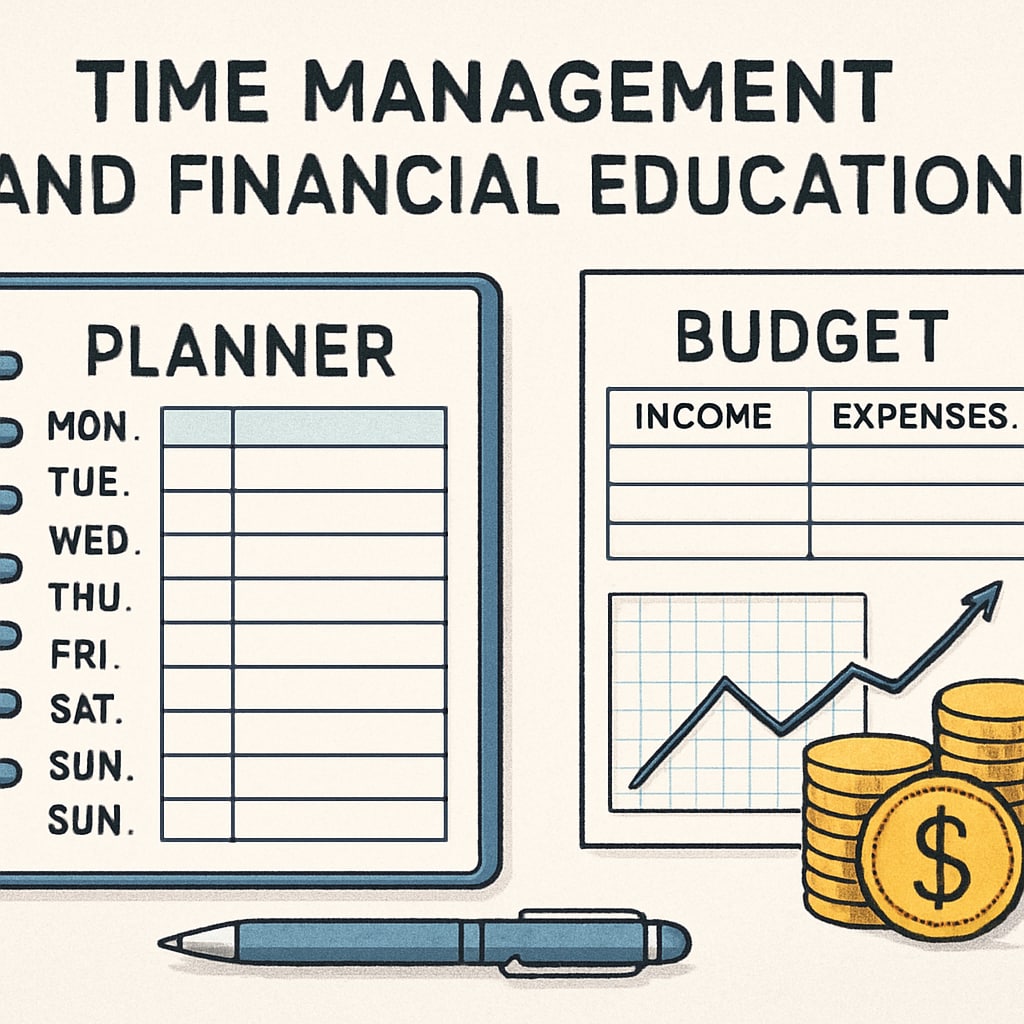Modern education systems are designed to equip students with knowledge across various disciplines. However, they often fail to address two critical life skills: financial education and time management, which are essential for navigating adult life. Incorporating these skills into the school curriculum can empower students to make informed decisions and maximize their potential in the future.
Why Financial Education and Time Management Matter
Financial literacy (the ability to understand and manage money) is a vital skill in adulthood, influencing decisions about saving, investing, and budgeting. Yet, many young adults leave school without a basic understanding of how to manage their finances, often leading to debt and financial instability. Similarly, time management is crucial for balancing responsibilities, achieving goals, and maintaining mental well-being. When students learn these skills early, they gain tools that contribute to long-term success.

The Role of Schools in Teaching Life Skills
Schools are uniquely positioned to shape young minds and prepare them for life beyond academics. While subjects like math and science are undeniably important, the absence of practical life skills education leaves students vulnerable to real-world challenges. By integrating financial literacy and time management into the K12 core curriculum, schools can foster well-rounded individuals prepared to thrive in a competitive and fast-paced world.
- Financial Education: Teaching budgeting, saving, and investing can prevent common financial mistakes.
- Time Management: Introducing strategies like prioritization, goal setting, and scheduling can enhance productivity.

How to Implement These Skills in K12 Education
Incorporating financial education and time management into the curriculum requires careful planning and collaboration. Schools can start by introducing interactive lessons, real-world projects, and mentorship programs to engage students effectively. For example:
- Include practical exercises, such as creating a personal budget or managing a mock investment portfolio.
- Provide workshops on time management techniques, including digital tools like calendars and productivity apps.
- Partner with financial experts and life coaches to offer guest lectures and guidance.
As a result, students will not only learn theoretical concepts but also gain hands-on experience in using these skills in realistic scenarios.
The Long-Term Benefits of Core Life Skills Education
When financial literacy and time management are taught systematically, their impact extends far beyond the classroom. Students become more confident in handling their finances, more adept at organizing their time, and better equipped to face challenges in higher education and the workforce. Ultimately, these skills contribute to the development of responsible, independent, and successful individuals.
Conclusion: Incorporating financial education and time management into K12 school curriculums is no longer optional—it’s essential. By teaching these life skills, schools can empower students to take control of their future and achieve personal and professional success.


